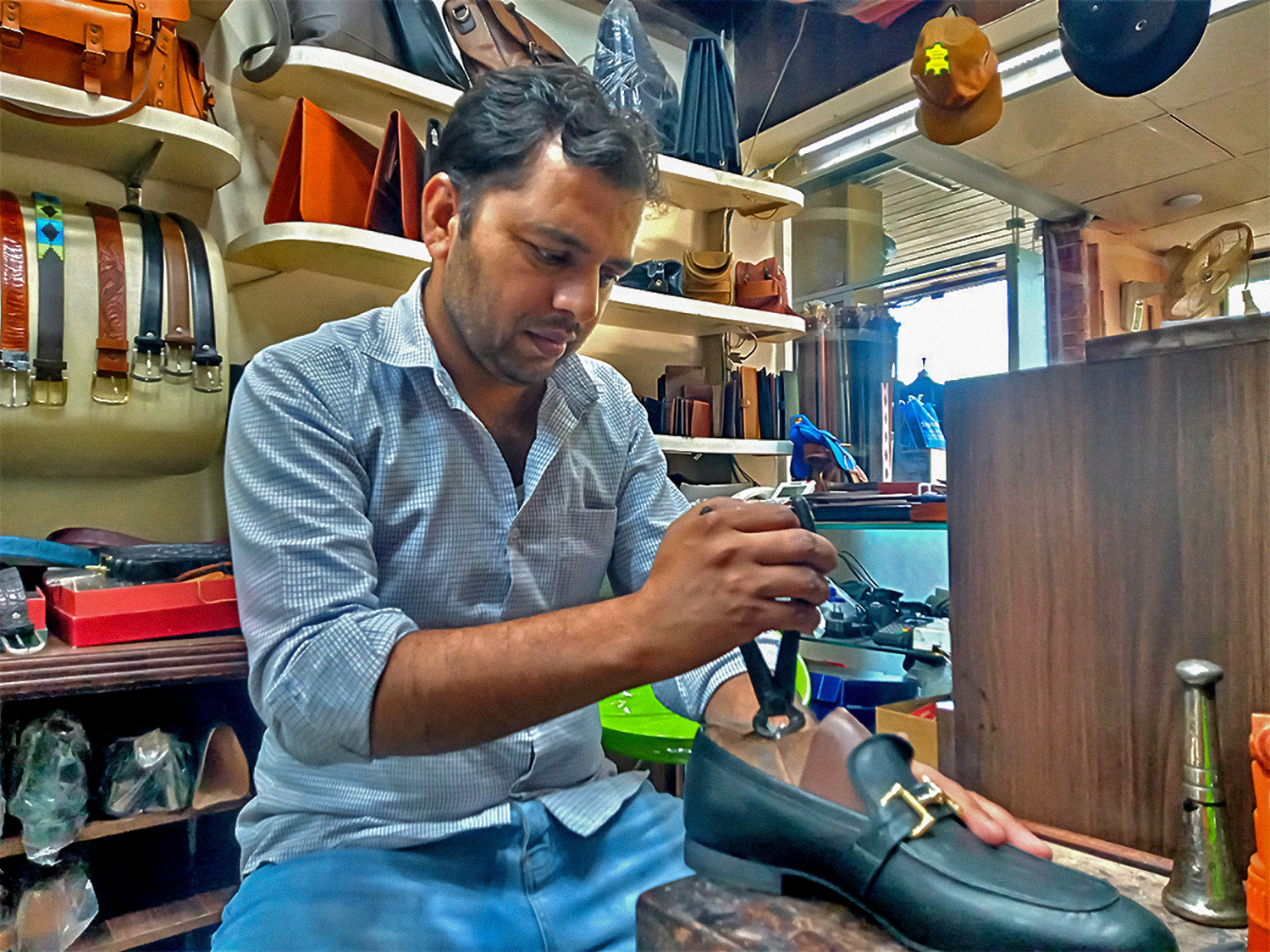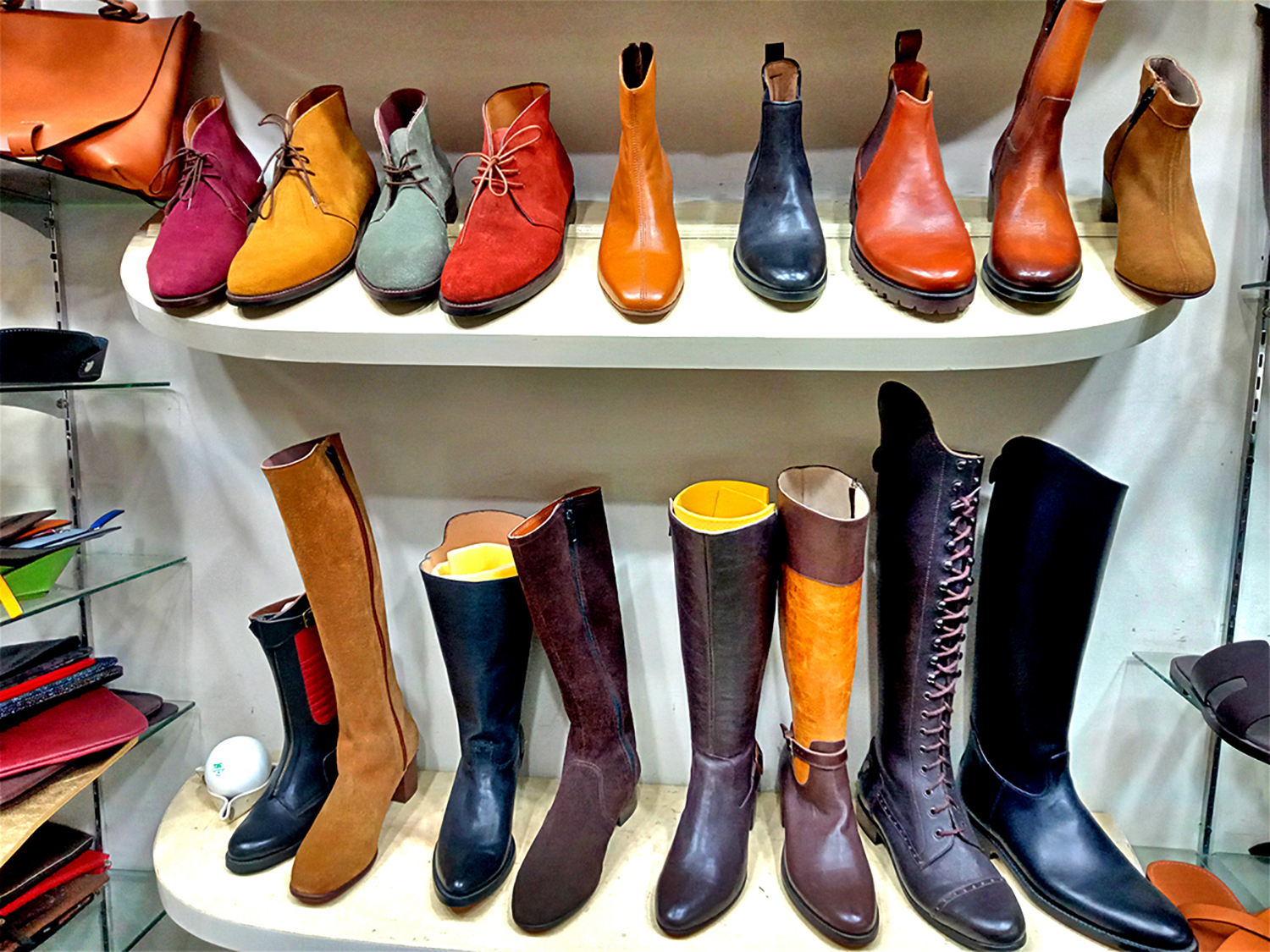ISLAMABAD: Amjad Rehman and his family have been selling handmade bespoke shoes and bags for the last fifty years, serving high-end customers, including top diplomats, at a shop in the Pakistani capital, Islamabad.
Today, they are considering new ventures as their business, which combines art and craftsmanship, fast loses customers to a rising demand for branded footwear.
“We have always had a select group of customers since not everyone can afford bespoke shoes,” Rehman told Arab News at his shop, Jenza Leather, in Islamabad’s upscale F-6 neighborhood. “However, we are also losing them to brands now.”
There are also no technical institutes in Pakistan imparting the skill to new artists, and knowledge of the field is mostly passed down generationally.
“This is an excellent skill to develop due to the lack of trained craftsmen in this field,” Arif Mahmood, one of ten artisans who work flexible hours at Jenza Leather, told Arab News.
“But the new generation doesn’t appreciate the skill,” he added. “People don’t give due value to it.”

Amjad Rehman works on a bespoke shoe at his shop in Islamabad, Pakistan, on April 27, 2022. (AN photo)
At Rehman’s shop, original goat, sheep and cow skins are used to make formal and casual shoes that are sold for up to Rs25,000 ($135) a pair, depending on the design and material. Plastic or rexine are never used, Rehman said.
Bags, purses, wallets, belts and jackets made from leather are also sold at the shop.
Sometimes exotic materials such as ostrich skin are used as per customers’ demands and the raw material has to be imported and hefty taxes paid.
“We only deal in leather skins which are legal in Pakistan,” he said, adding that customers sometimes requested crocodile and other banned skins, which “we politely decline.”
“Our customers come up with different designs downloaded from the internet with an expectation that we will prepare exactly the same article,” he said. “Thank God, we always manage to deliver.”

Handmade leather shoes on display at a shop in Islamabad, Pakistan, on April 27, 2022. (AN photo)
A majority of Rehman’s customers are foreign diplomats working at embassies in Islamabad, or buyers in the Middle East, Europe and the United States.
“We usually take orders online from our overseas customers and then courier the articles within a specific time,” he said, adding that the government needed to bring down taxes on imported raw materials and set up technical institutes for the craft.
“This is a dying art now,” artisan Mahmood said, “and we may not be able to keep it alive for long.”
But one loyal customer, Kashan Bhatti, said he would continue to shop at Rehman’s shop and buy bespoke shoes that were both “durable and comfortable” and could last up to ten years.
“These leather shoes absorb sweat,” he said as he inspected a pair of boots. “They keep your feet cool in summer and warm in winter.”















